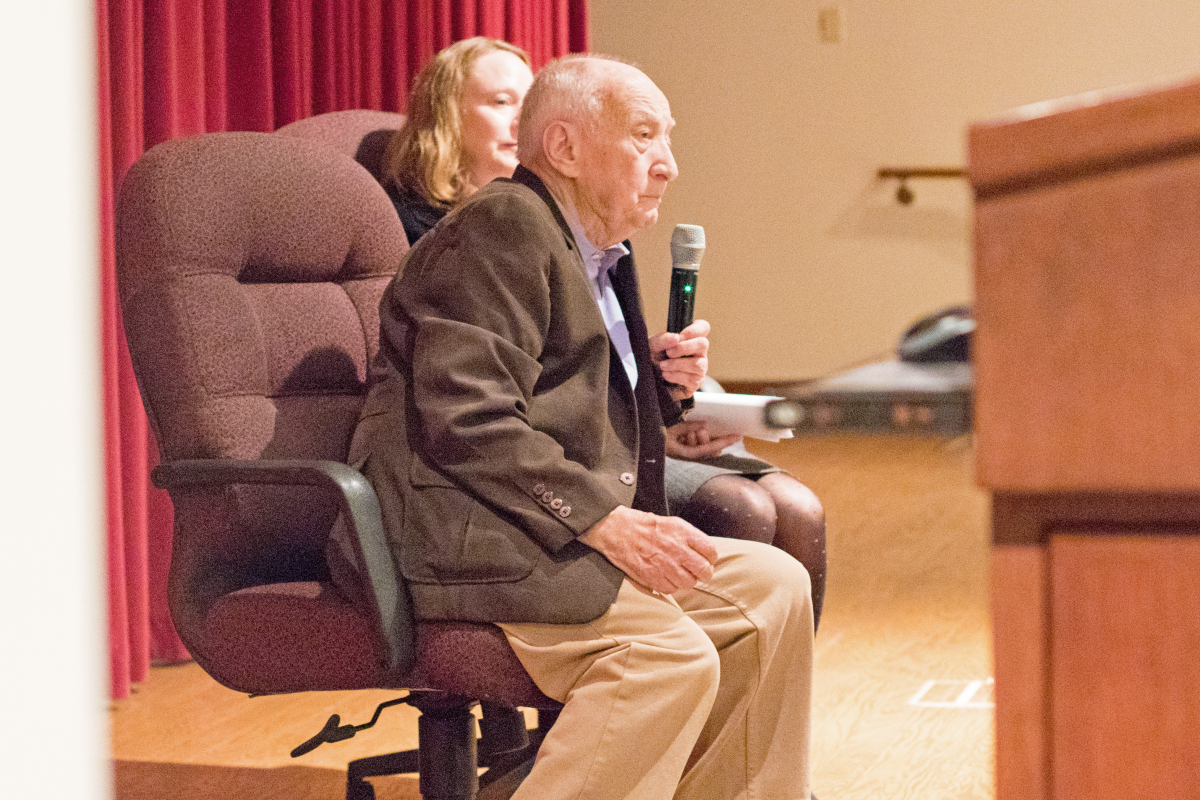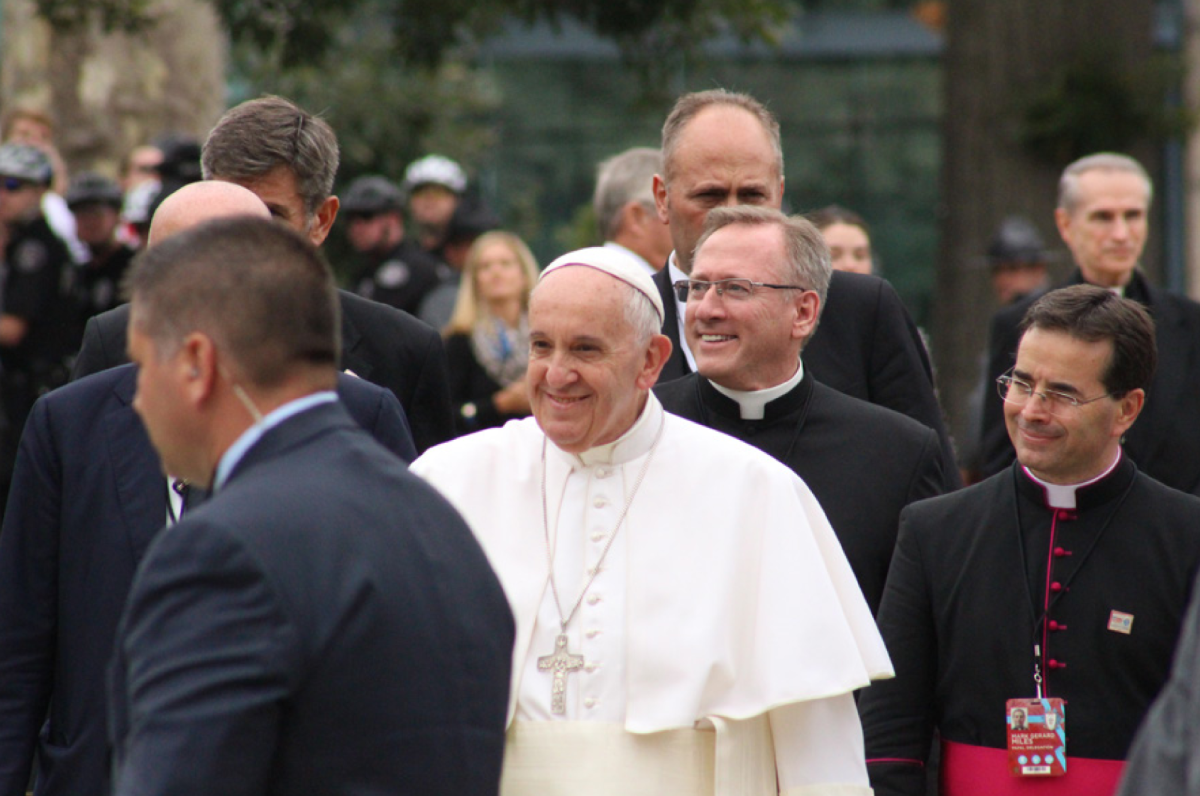Leslie Schwartz, Holocaust survivor, speaks at St. Joe’s
On a cold and rainy day in May 1944, 437,402 Hungarian-Jews were taken to Auschwitz concentration camp in southern Poland. After this five-day, brutal journey to the camp in cattle wagons, Leslie Schwartz found himself standing in the selection line. Schwartz is the only survivor out of his immediate family, and eventually ended up in Auschwitz. Auschwitz Concentration Camp had 1,095,000 Jews deported, of which 960,000 died. After being in Auschwitz for 10 days, he was then sent to Dachau in southern Germany to work on the railroad.
Schwartz, 86, came to Saint Joseph’s University on Nov. 29 to share stories from his time at Auschwitz and Dachau.
“When I arrived [in the United States] after the war, my uncle and my cousins said to me ‘Please do not talk about your past anymore. You are now living in the United States,” Schwartz said. “I never spoke until 2007.”
After 65 years of silence, he finally decided to share his story with the public. Schwartz embraced his past and travelled back to Auschwitz, Dachau, and Poing where he once fought for his life. By traveling, he decided he no longer wanted to stay silent. Instead, he wanted to share his story and allow people to learn from the past. Since 2007, Schwartz has spoken at 1,000 high schools.
“I am telling my story and I try to make it a point of how important it is to love each other,” Schwartz said.
Schwartz worked closely with Melissa Chakars, Ph.D., associate professor of history, to coordinate this event.
Chakars hopes that students were able to learn something from this event and reflect on what has happened in the past in order to move on into the future.
“We need to think about forgiveness and how we can prevent these things from ever happening again,” Chakars said.
“What I want students to get out of this is that there were horrible things that happened in the past, and that these stories need to be told,” Chakars said.“There are moments of humanity that we need to retain.”
Students first watched 20 minutes of Schwartz’s documentary “The Muhldorf Train of Death,” and then participated in a question and answer session with Schwartz. Questions ranged from what his experiences were to his feelings about what is happening in the world today.
Brian Gallagher, ’18, was one of the many students who attended the event.
“I think it is incredibly important to maintain this living memory of the Holocaust,” Gallagher said. “The whole motif is to maintain this idea that it shouldn’t happen again.”
Students were not the only ones who attended the event; professors, alumni, and many others came out to hear what Schwartz had to say about his experiences.
Carol Anderson, a friend of an alumni, explained what she hoped to learn from the event.
“[I wanted to know] how they were able to live the rest of their life; how do you come out from that and find hope and optimism?” Anderson said.
Some of the main topics that came up in the discussion were the concepts of determination and a positive mindset. Schwartz explained to the students how it was determination that got him through the horrible times at Auschwitz and Dachau.
“I was a 14-year-old child who endured and suffered so much,” he said. “We had a false liberation and I was starved and I ran to a community where this woman gave me some milk and a piece of bread and suddenly I hear somebody screaming ‘Hands up!’.I thought, ‘I lived through all of these horrible times and now I have to die.’ I started running and he shot me and the bullet went through my neck and went out of my cheek.”
When lying on the ground after being shot, Schwartz had a choice: of staying on the ground and being shot again, or getting up and continuing on. He chose the latter.
“Those who are fit survive, and those who aren’t just fade away,” Schwartz said.







































